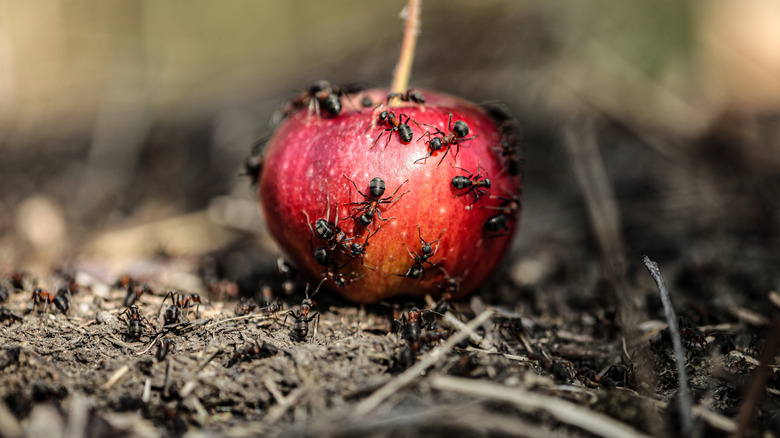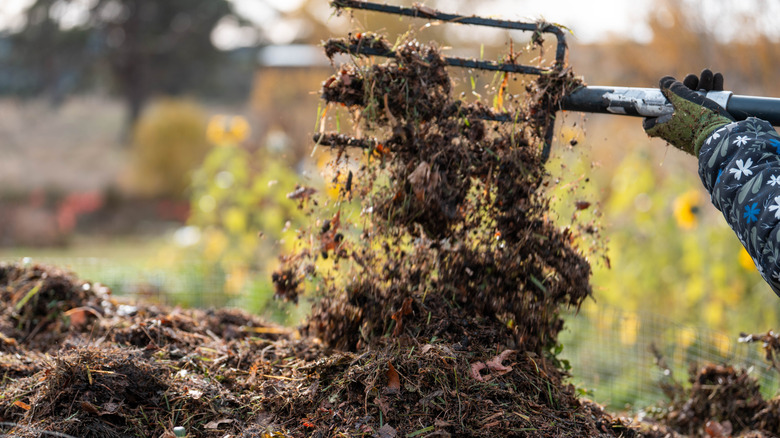Are Ants Invading Your Garden's Compost? Here's How To Stop Them
Microorganisms are usually a welcome guest in compost, but larger pests like ants may be problematic. Ants are attracted to compost for warmth, shelter, moisture, and food. Before you look for ways to get rid of them, consider whether they really need to be vanquished. Small-to-moderate ant invasions generally do not harm compost, and they may even provide such benefits as introducing fungi and minerals (phosphorus and potassium) into the compost. The presence of ants in your pile or bin can signal an issue with your compost, such as excessive dryness. However, if ants have quickly become a problematic downside of your compost bin, you may want to get rid of them.
A severe infestation, especially from aggressive species like fire ants with their painful bites, is a good reason to eradicate ants in your compost. If you are hot composting, the problem will likely solve itself once the compost reaches over 100 degrees Fahrenheit with the right balance of nitrogen and carbon materials. Ants won't survive in temperatures that hot.
Ways to rid your compost of ants
If you're not hot composting, try adding more moisture to the compost since ants prefer dry nesting places. Turning the pile more frequently can also help, since ants will avoid areas that are constantly disturbed. Diatomaceous earth is an effective tool for getting rid of ants, especially in compost. It kills ants by attaching to the protective coating on their exoskeletons, which then dries out. Apply a light layer to the surrounding area and the top of your compost. This should be enough to disrupt their paths and keep ants away. You can also consider growing ant-repelling herbs like mint and sage near your compost. Studies suggest that herb oils, such as turmeric and thyme, are effective in repelling fire ants.
There are also some common anti-ant tactics that may not actually be effective. The popular method of pouring boiling water on ants has mixed opinions. It can work if done correctly by using 3 gallons of almost-boiling water, but it has the downside of being a safety hazard for the person pouring the water and may kill any plants near the compost. Beneficial nematodes are sometimes used against ants, but have been shown to be ineffective against fire ants. Preventive strategies are also important, so try to be aware of outdoor compost bin mistakes that might be attracting pests in the first place.

